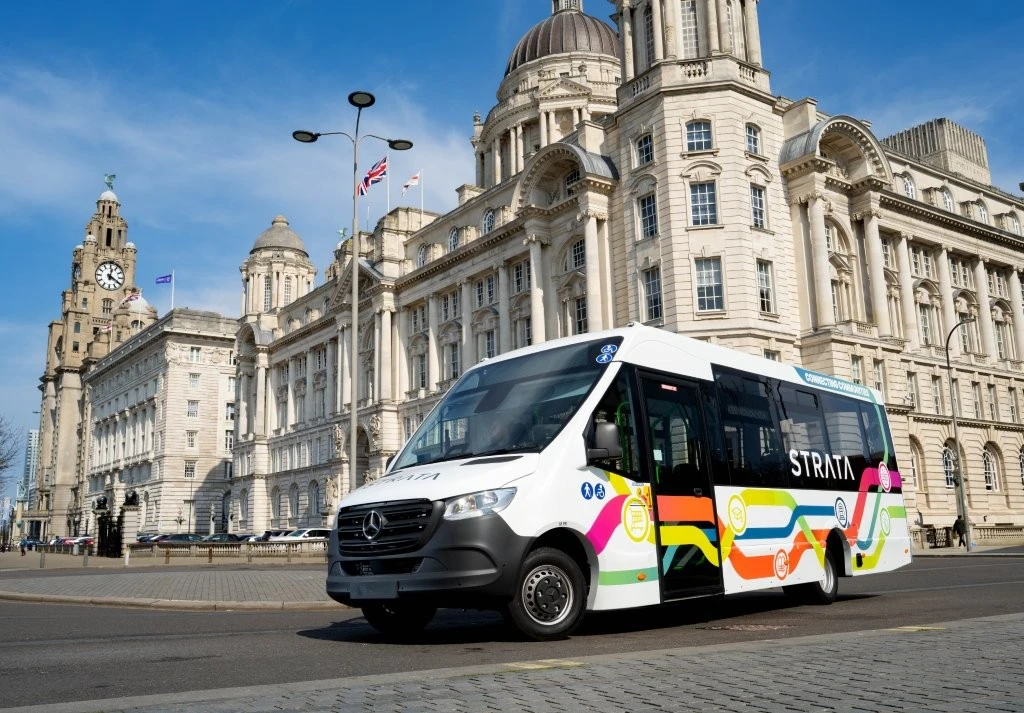Which UK City Might Adopt DVS Next?
.png)
As the UK pushes for safer and more efficient transport in its urban centres, London’s Direct Vision Standard (DVS) has set a strong precedent. With the updated Progressive Safe System (PSS) requirements now in force, many in the commercial vehicle industry are asking the same question: Which city could be next?
It’s a question worth paying close attention to, because if DVS or similar safety standards are rolled out to more parts of the country, the impact on fleet operations will be significant. Here’s what we know so far, and what fleet operators should be preparing for.
Greater Manchester: A Possible Contender
Greater Manchester has shown the clearest signs of following London’s lead when it comes to HGV safety. The region has been considering its own version of a DVS-like system as part of its Vision Zero Strategy and Action Plan – a commitment to eliminating road deaths and serious injuries – introduced on the 29th November 2024.
Although Manchester recently scrapped plans for a charging Clean Air Zone (CAZ), replacing it with an £86 million investment-led approach, safety remains high on the agenda. With this shift in focus, city leaders may choose to double down on HGV safety technologies, such as those required by DVS.
Rather than charging non-compliant vehicles, Greater Manchester could adopt a supportive strategy – investing in infrastructure, education, and incentives to help fleet operators meet safety expectations, but as with all of this speculation, nothing is certain.
Bristol & Birmingham: Building the Case
Both Bristol and Birmingham are heavily focused on sustainable, safe transport and are working to reduce road danger through Vision Zero-aligned plans.
Bristol has a well-developed Transport Strategy centred around walking, cycling, and public transport – all modes that place vulnerable road users in closer proximity to HGVs. The city’s commitment to reducing collisions makes DVS-style measures a logical next step, especially for vehicles operating in the city centre.
Meanwhile, Birmingham’s long-term development strategy supports cleaner and safer transport, with significant changes already underway to reduce car dependency. Although no DVS plans have been confirmed, Birmingham’s Road Harm Reduction Strategy, introduced in March 2025, follows the Safe System approach, which is built around four key principles:
- People make mistakes and misbehave. This can lead to collisions.
- The human body has a limited physical ability to tolerate collision forces before harm occurs
- Responsibility for safety on our roads is shared. Those who design, build, manage and use roads and vehicles and those who provide post-crash care all have a part to play
- All parts of the system must be strengthened so that if one part of the system fails, all road users are still protected
Birmingham City Council says that: “Whilst Vision Zero focuses on deaths and serious injuries, measures to deliver a Safe System will, over time, have a positive impact on collisions where people receive minor injuries, or where there is damage to property only.”
Why the Shift Toward Safer Streets Matters for Fleets
In all these cities, the core issues are the same: protecting vulnerable road users, reducing blind spot incidents, and making urban freight safer. Whether the DVS name is used or a local variation is developed, the reality is that more cities are recognising the value of vehicle-based safety tech.
Fleet operators working across multiple regions should take a proactive approach. As safety standards tighten, especially in cities committed to Vision Zero, there’s likely to be growing pressure to adopt systems that improve driver visibility and reduce the risk of collisions.
Future-Proofing Your Fleet with Sentinel Systems
At Sentinel Systems, we help operators take the guesswork out of compliance. Whether you’re staying on track with DVS and PSS in London or want to stay ahead of the curve in cities like Manchester, Birmingham, or Bristol, we’ve got you covered.
Our Progressive Safe System packages include:
- Advanced camera and sensor systems to eliminate blind spots
- Audible warnings to protect pedestrians and cyclists
- Expert installation and retrofitting to existing DVS setups
- Full support to ensure your fleet meets current and future safety standards
With cities around the UK considering their next moves on HGV safety, now’s the time to get ahead. Even if formal regulations aren’t yet in place, preparing your fleet today can save you time, money, and disruption tomorrow.
Get in touch with Sentinel Systems to find out how we can help your fleet stay safe and compliant wherever you operate.


